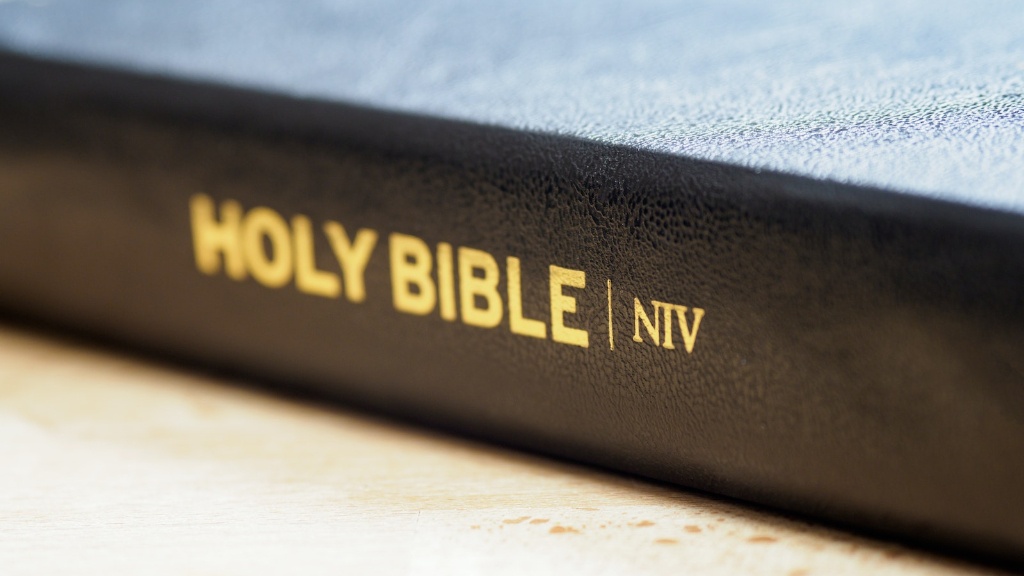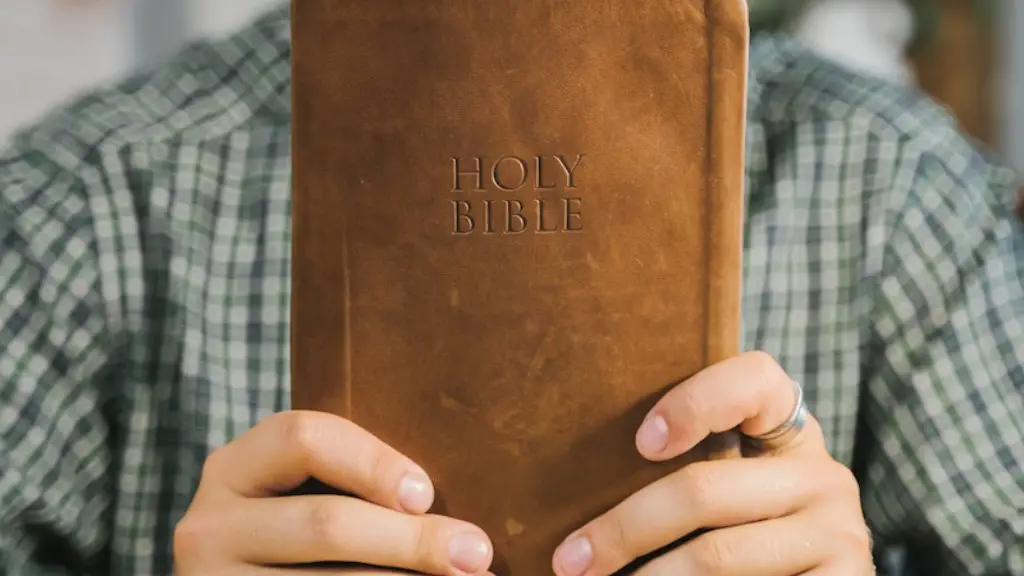Beards have been a symbol of masculinity and faith for centuries, from Buddhist monks to Christian priests, often connected directly to religion. While we may not know exactly why beards are so embraced throughout history, we can look to the Bible to explore what the holy text says about beards and the many roles they have come to play.
The Bible specifically mentions beards in Leviticus 19:27, where God warns against rounding the edges of your beard—though the exact meaning of this verse is up for debate among scholars. One interpretation is that it was meant to distinguish the people of Israel from those who did not follow the Bible, as many other cultures of the time would round the corners of their beards.
Beyond this clear reference, there are many other moments in the Bible where beards are referenced. In the Old Testament, kings and leaders like Moses, Aaron and King David were often depicted wearing full beards, a sign of wisdom and power.
In more modern times, beards have become a sign of Christian faith and devotion, as many people tend to look to the Bible’s prophecy of Jesus’ return and the reference to his beard in Isaiah 50:6: “I gave my back to those who beat me, my cheeks to those who plucked my beard.” By having a beard, many people feel like they are following in Jesus’ footsteps and showing respect for what the Bible teaches.
Beards also can symbolize a man’s willingness to be an example of faithfulness to God and his people. Men in the Bible not only wore beards, but some also grew beards to signify a commitment to prayer and faithfulness to God in difficult times. This is evidenced in stories like Joseph, who grew a beard to show that he had been faithful to God despite his difficult journey. In these stories, the full beard was used to show a commitment to God and to honor the teachings in the Bible.
Though the Bible doesn’t explicitly state that men should grow beards in order to be faithful to God, there is certainly an implication that beards have a spiritual significance. Beards can be seen as a physical reminder of our commitment to God and of the lessons we can take away from studying the Bible.
Family, Community and Acceptance
Beards have come to symbolize much more than just faith. They can be symbols of family, community, and acceptance. In many cultures, a father’s beard can be seen as a sign of his love for his children, and a son’s growth of a beard can signify his commitment to his family.
Beards can also be a reflection of a community’s beliefs and values. For example, in some religious communities, a man’s beard may be seen as a sign of his willingness to adhere to the laws and tenets of his faith. This may be especially true if the beard is styled in a specific way to show respect for the teachings in the Bible.
Finally, beards can also be seen as a sign of acceptance and understanding, especially when it comes to LGBTQ identities. Beards, depending on their style and coloring, can be seen as a way of affirming one’s gender identity. This allows those with beards to proudly express themselves and to be accepted by their peers, even if they don’t fit the traditional gender norms.
In addition to these cultural and religious meanings, beards also serve a practical purpose. Beards help protect the face from sun damage and cold weather, while also helping to keep skin looking healthy and youthful.
Effects on Personal Image And Confidence
Beards have an effect on a man’s personal image and confidence, reflecting how he sees himself and how he wants to be seen by others. It’s possible to be confident without having a beard. However, many men feel that growing a beard can provide additional opportunities for self-expression. It also can provide an opportunity to be part of a larger community, whether it’s religious or cultural, that believes in the power of the beard.
For some men, growing a beard is a sign of strength, wisdom, and maturity. Beards signify a level of commitment and dedication that can come with advancing age and wisdom. This can be especially true for those who follow their faith closely, showing their commitment to the teachings in the Bible.
On the other hand, growing a beard also can be a sign of courage and risk-taking, as it can be a challenge to look different than everyone else. It can be an outward expression of one’s inner strength and confidence. It also can be a way to show that a man is willing to stand out and be noticed, even if that means straying from traditional gender roles.
In conclusion, whether we’re looking at the Bible or our own individual lives, it’s clear that the beard has become a powerful symbol in our culture and our faith. It’s a sign of strength, courage, and faith that many men strive for, and it can be a powerful tool for self-expression and acceptance.
Signs of Holiness and Purity
In many religions and cultures, beards can be seen as a sign of holiness and purity. In some faiths, like Judaism, a beard may be seen as a sign of maturity and manhood, and a sign of respect for the laws and traditions of the religion. In other faiths, like Hinduism and Sikhism, growing a beard can be seen as a sign of devotion to God.
It is also believed that in the Bible, Jesus was said to have worn a full beard, and some biblical scholars believe the beard was a sign of strength and dignity, as it allowed him to better display his teachings. Additionally, some believe that a man’s beard can help him to stay humble and in line with the teachings of the Bible.
While some may argue that beards are merely a sign of vanity, they can also be seen as a symbol of humility, strength, wisdom, and faith. It is a sign that a man is devoted to his faith and his people, and it is a reminder to stay true to the teachings of the Bible.
Protection and Health Benefits
Apart from the symbolic beauty that beards can bring, there are also many practical and health benefits that come along with growing a beard. The most important benefit is the protection a beard can provide against the sun’s ultraviolet rays. It has been found that beards can protect against sunburn and keep skin from prematurely aging and wrinkling due to sun exposure.
A beard can also be beneficial for those who suffer from allergies or asthma. According to one study, beards can trap pollen and other allergens, which can help to reduce an individual’s susceptibility to allergies. Additionally, beards are thought to act as a “natural air filter,” which can help to reduce the irritating effects of air pollution on the skin.
Beards can also help keep skin hydrated, as they help to protect the skin from environmental damage. Studies have found that beards can help to retain moisture and may even reduce the risk of skin infection by trapping bacteria and dirt. In addition, a beard can provide a layer of insulation on cold days, helping to keep a person warm and protect their skin from the wind and cold temperatures.
Attention to Care and Details
Beards require a significant amount of care and attention in order to maintain their look and keep them healthy. First, men should take care to properly clean and condition their beard. This process can help to prevent dirt, bacteria, and other irritants from getting trapped in the beard, which can lead to skin irritation. Regular oiling of the beard is also recommended. This can help to keep the beard soft and manageable.
In addition to cleaning and oiling, men should be sure to trim their beard regularly. This can help to keep the beard looking neat and tidy, and it can also help to keep the hair from becoming too long or unruly. Finally, it’s also important to remember that good nutrition is essential for maintaining healthy skin and hair, so be sure to get plenty of fruits, vegetables, and Omega-3 fatty acids to keep your beard looking its best.
When done correctly, maintaining a beard can be a rewarding experience that makes a man feel more confident and attractive. It can help to enhance a man’s personal image, while also providing practical benefits like protection from the sun and allergens. It is also a reminder of the Bible’s teachings and a commitment to faith and family.





